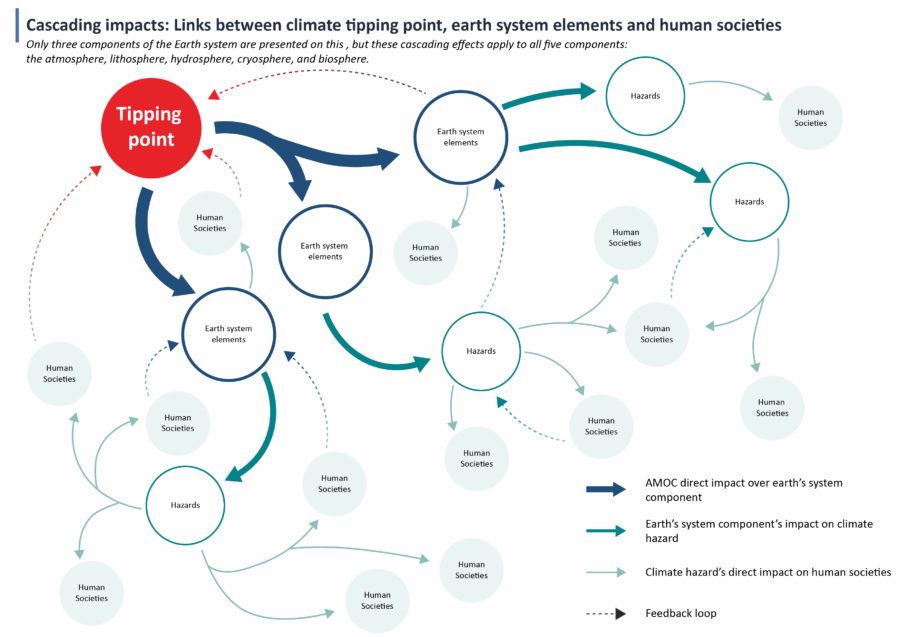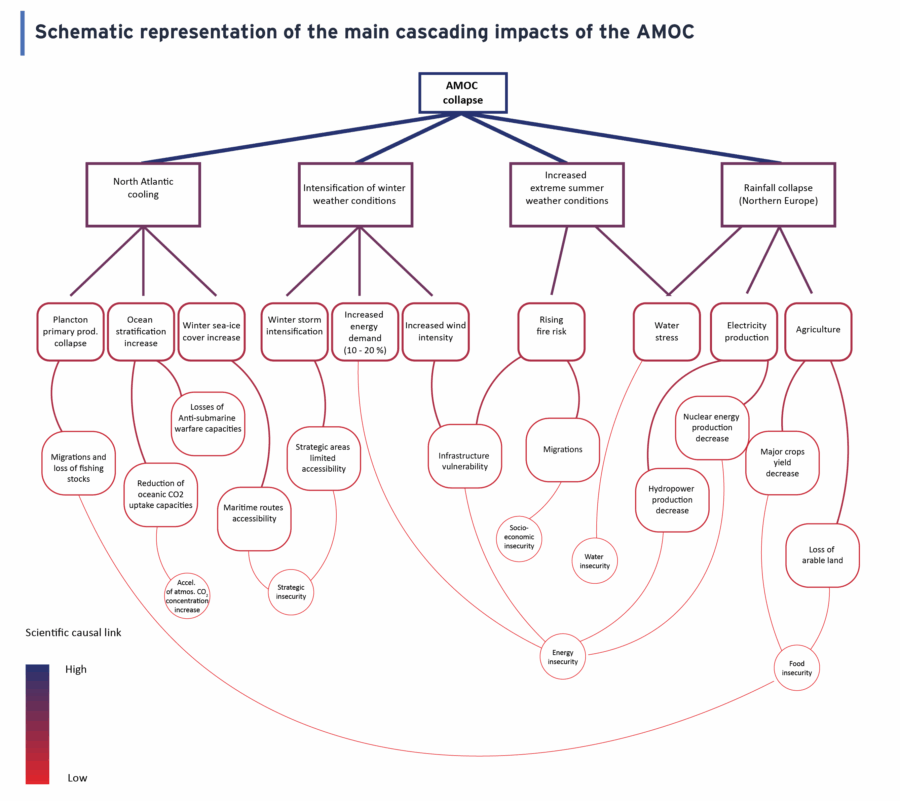Security and Defence Implications of Climate Tipping Points – The Atlantic Meridional Overturning Circulation (AMOC)
This note is part of a series of publications by The Defense & Climate Observatory aimed at studying the security and defense implications of climate tipping points established by the Intergovernmental Panel on Climate Change (IPCC). Its aim is to inform political and economic decision-makers about the security and defense implications of a slowdown, or even collapse, of the AMOC.

In a complex climate system with highly interconnected components, thresholds have been identified at which feedback loops feed back on themselves and sharply accelerate climate change. Understanding the accelerating factors and associated tipping points is therefore crucial to complement the climate security studies already carried out.
The tipping points studied in this series of notes will be those identified by the IPCC. This first note focuses on the slowdown, or even collapse, of the Atlantic meridional overturning circulation (AMOC). This system of ocean currents redistributing heat accumulated around the equator towards the North Atlantic is central to the equilibrium of the climate system. As such, it has been studied for several decades. In 2003, it was the focus of a US safety study. While scientific uncertainties have long hindered its inclusion in strategic documents on climate security, the recent convergence of climate model results around a slowdown in the AMOC has revived the research momentum.







